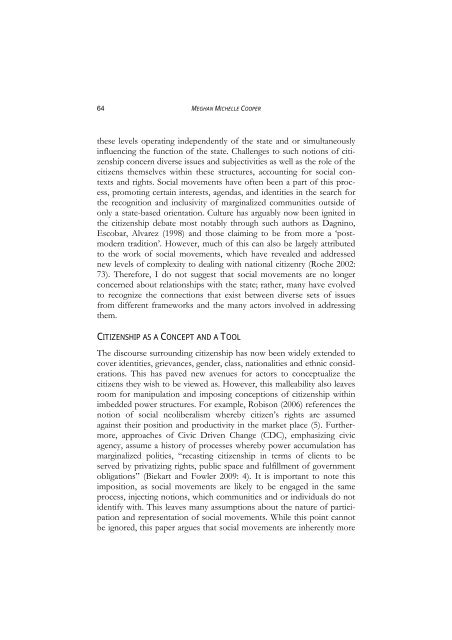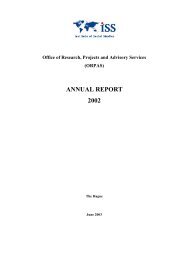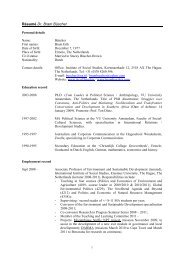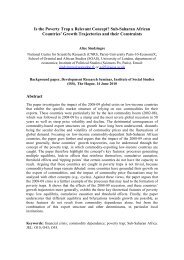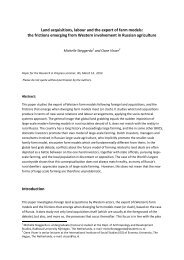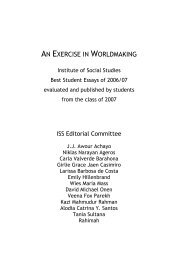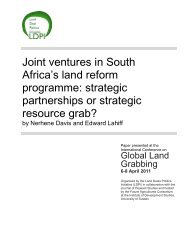AN EXERCISE IN WORLDMAKING 2009 - ISS
AN EXERCISE IN WORLDMAKING 2009 - ISS
AN EXERCISE IN WORLDMAKING 2009 - ISS
You also want an ePaper? Increase the reach of your titles
YUMPU automatically turns print PDFs into web optimized ePapers that Google loves.
64 MEGH<strong>AN</strong> MICHELLE COOPER<br />
these levels operating independently of the state and or simultaneously<br />
influencing the function of the state. Challenges to such notions of citizenship<br />
concern diverse issues and subjectivities as well as the role of the<br />
citizens themselves within these structures, accounting for social contexts<br />
and rights. Social movements have often been a part of this process,<br />
promoting certain interests, agendas, and identities in the search for<br />
the recognition and inclusivity of marginalized communities outside of<br />
only a state-based orientation. Culture has arguably now been ignited in<br />
the citizenship debate most notably through such authors as Dagnino,<br />
Escobar, Alvarez (1998) and those claiming to be from more a ‘postmodern<br />
tradition’. However, much of this can also be largely attributed<br />
to the work of social movements, which have revealed and addressed<br />
new levels of complexity to dealing with national citizenry (Roche 2002:<br />
73). Therefore, I do not suggest that social movements are no longer<br />
concerned about relationships with the state; rather, many have evolved<br />
to recognize the connections that exist between diverse sets of issues<br />
from different frameworks and the many actors involved in addressing<br />
them.<br />
CITIZENSHIP AS A CONCEPT <strong>AN</strong>D A TOOL<br />
The discourse surrounding citizenship has now been widely extended to<br />
cover identities, grievances, gender, class, nationalities and ethnic considerations.<br />
This has paved new avenues for actors to conceptualize the<br />
citizens they wish to be viewed as. However, this malleability also leaves<br />
room for manipulation and imposing conceptions of citizenship within<br />
imbedded power structures. For example, Robison (2006) references the<br />
notion of social neoliberalism whereby citizen’s rights are assumed<br />
against their position and productivity in the market place (5). Furthermore,<br />
approaches of Civic Driven Change (CDC), emphasizing civic<br />
agency, assume a history of processes whereby power accumulation has<br />
marginalized polities, “recasting citizenship in terms of clients to be<br />
served by privatizing rights, public space and fulfillment of government<br />
obligations” (Biekart and Fowler <strong>2009</strong>: 4). It is important to note this<br />
imposition, as social movements are likely to be engaged in the same<br />
process, injecting notions, which communities and or individuals do not<br />
identify with. This leaves many assumptions about the nature of participation<br />
and representation of social movements. While this point cannot<br />
be ignored, this paper argues that social movements are inherently more


